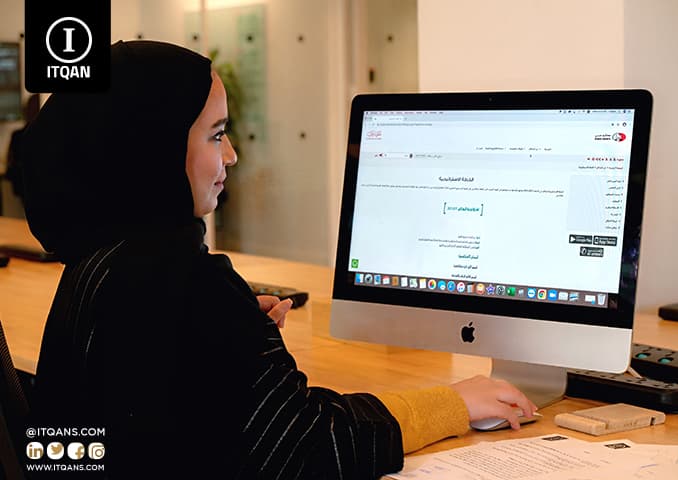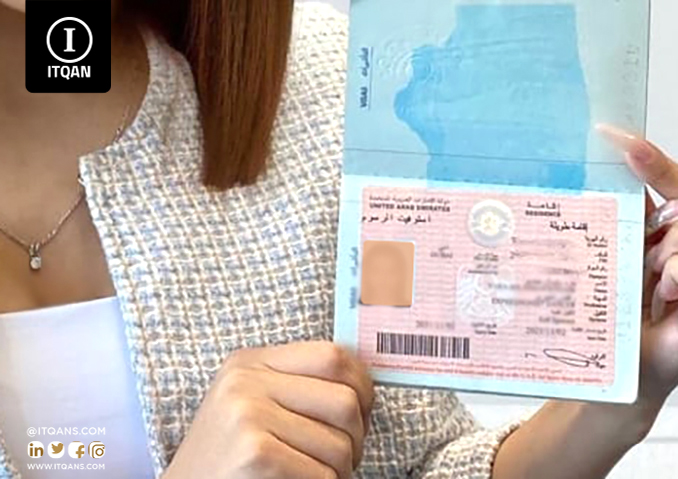Learn about the steps to close a company in Dubai because corporate liquidation in Dubai is the process of closing a limited liability company, canceling the business license and distributing the company’s assets and property. In order to stop operations and activities. The liquidation of companies in Dubai requires a high degree of professionalism and experience to implement it because it requires many legal and financial procedures that may take a long time to complete, and the liquidation of the company must be a unanimous decision among the company’s shareholders before implementation. Closing a company in Dubai usually takes between 60-80 days to complete, which is the shortest possible time if the company has no fines and no one has filed a claim or objection. Note that some problems may arise during the liquidation process, and we in our company have professional experience. The wide range allows you to easily remove any problem and speed up the filtering process.

Steps to close a company in Dubai
جدول المحتوى
ToggleSteps to liquidate a company in Dubai
Steps to close a company in Dubai require following a set of organized steps to ensure its closure in a legal and orderly manner. Here are the basic steps to liquidate a company in Dubai:
- Making a liquidation decision : Shareholders or partners must make a decision to liquidate the company in accordance with its articles of association and internal regulations.
- Appointment of a liquidator : Appointing a certified liquidator or a chartered accountant to manage the liquidation process. The liquidator is responsible for liquidating the company’s assets and settling debts.
- Notifying the competent authorities : Submitting a notice of liquidation to the Department of Economic Development in Dubai, and other relevant authorities such as tax authorities and regulatory authorities.
- Preparing the liquidation report : Preparing a report that includes details of the company’s assets, liabilities, and financial documents. This report must be approved by the liquidator and submitted to the competent authorities.
- Settlement of debts and obligations : Settlement of all debts and financial obligations of the company with creditors and suppliers.
- Sale of Assets : Liquidation of company assets through sale or transfer in line with local laws and regulations.
- Closing bank accounts : Closing the company’s bank accounts after settling all financial transactions.
- Cancellation of the commercial license : Submit a request to cancel the commercial license with the Department of Economic Development, and cancel any other permits or licenses that the company may have.
- Preparing and delivering liquidation documents : Preparing all the necessary documents to prove liquidation, such as the liquidation certificate, and submitting them to the competent authorities.
- Close legal files : Close all legal files and adhere to any final legal requirements.
- Record Retention : Retention of company records for a specified period after liquidation, in accordance with local laws.
Note : It is always preferable to consult Itqan Specialists to ensure that all steps are in line with local laws and regulations in Dubai.
The steps for closing a sole proprietorship or branch of a sole proprietorship are:
Closing a sole proprietorship or a branch of a sole proprietorship in Dubai requires following certain steps to ensure the process is completed legally and smoothly. Here are the basic steps:
Closing a sole proprietorship
- Closing decision making: Making a final decision to close the sole proprietorship, which must be supported by the owner.
- Ensuring payment of all obligations: settling all debts and financial obligations of the organization with creditors and suppliers.
- Cancellation of the commercial license: Submit a request to cancel the commercial license to the Department of Economic Development in Dubai. You will need to provide documents proving payment of all obligations and settlement of accounts.
- Closing bank accounts: Closing the organization’s bank accounts after settling all financial transactions.
- Return of any licenses or permits: Return any relevant licenses or permits to the competent authorities.
- Preparing closure documents: Preparing the documents required to prove the closure of the institution, such as the closure certificate, and submitting them to the competent authorities.
- Close Legal Files: Close all legal files and ensure that there are no outstanding legal requirements.
- Record Retention: Retaining an organization’s records for a certain period after closing, in accordance with local laws.
Closing a branch of a sole proprietorship
- Making a closure decision: A final decision to close the branch is made by the owner or the concerned department.
- Payment of all obligations: Settlement of all debts and financial obligations of the branch.
- Cancellation of the branch’s commercial license: Submit a request to cancel the branch’s license to the Department of Economic Development, along with submitting documents proving the settlement of all obligations.
- Closing the branch’s bank accounts: Closing the branch’s bank accounts after settling all financial transactions.
- Return of any licenses or permits: Return any licenses or permits related to the branch to the competent authorities.
- Preparing closure documents: Preparing and submitting documents proving the closure of the branch to the competent authorities, such as the closure certificate.
- Closing legal files: Close all legal files related to the branch and ensure that there are no outstanding legal requirements.
- Record Retention: Retain branch records for a period of time after closing, in accordance with local laws.
Note: It is always best to consult Etqan Company to ensure that all procedures are in line with local laws and regulations in Dubai.
Permits required to close a business or liquidate companies in Dubai
Whether you are liquidating an LLC, dissolving a sole proprietorship, or closing a civil business corporation, release letters are required from the following government departments:
- Dubai Electricity and Water Authority (DEWA)
- Ministry of Human Resources and Emiratisation
- General Directorate of Residency and Foreigners Affairs in Dubai
- Emirates Telecommunications Group Company (Etisalat)
- Emirates Integrated Telecommunications Company (du)
- Approval of the Ministry of Economy to cancel the license of a foreign branch
- Depending on the license activity, additional government approvals may be required such as Dubai Police, Roads and Transport Authority, Telecommunications Regulatory Authority, Dubai Municipality, Knowledge and Human Development Authority, Real Estate Regulatory Department, etc.
Therefore, liquidating companies in Dubai requires accurate and professional information, many legal documents, government agencies and transactions, and without proper guidance and follow-up, company liquidation may take several months to complete.

Liquidation of companies in Dubai
How to create a successful business in Dubai
Choosing the appropriate type of liquidation helps expedite the entire liquidation process and save costs, and we at our company will provide you with professional advice and the best solutions to make liquidating your company easier in Dubai. Establishing a successful project in Dubai or establishing a company in Dubai requires good planning and effective implementation. Here are basic steps to ensure the success of your project:
1. Conduct a feasibility study: study competition and market needs. Understand potential customers and their trends. Calculating initial and operational costs. Establish a comprehensive budget.
2. Choose the type of business activity: Choose the activity that suits your interests and skills and takes advantage of the opportunities available in Dubai. Consider promising sectors such as technology, real estate, tourism, and financial services.
3. Develop a business plan: Define short- and long-term goals, marketing strategies, and expansion plans. Clarifying financial, marketing, and operational plans.
4. Choosing the legal structure: Determine the appropriate type of legal entity (limited liability company, sole proprietorship, branch of a company, etc.). With the registration of the project according to the chosen legal structure in the Department of Economic Development or in the free zones.
5. Obtaining a commercial license: Submit an application to obtain the appropriate commercial license for your activity from the Department of Economic Development or the responsible body.
6. Securing the business location: Choose a strategic location that suits your business. It can be in a free zone or in a location within the city. Securing a lease contract for the work site and submitting it to the competent authorities.
7. Staff recruitment: Employing a qualified and appropriate work team for the project activity. Ensure obtaining work visas for foreign employees if necessary.
8. Marketing and Promotion: Develop an effective marketing strategy that includes advertising campaigns, online promotion, and public relations. And create a strong and attractive brand to ensure your distinction in the market.
9. Operations management: Applying effective management systems to ensure the smooth running of operations. Regularly monitor performance and adjust strategies as needed.
10. Compliance with Local Laws: Ensure compliance with all local laws and regulations related to trade, taxes, and labor. While providing distinguished customer service to ensure customer satisfaction and build long-term relationships.
Note : Using local experts or consulting companies such as “Itqan” can help simplify the process and guide you through every step to ensure success.
In conclusion, closing a company in Dubai is a process that needs careful planning and effective management to ensure it is completed legally and smoothly. Regular steps are required, including deciding to liquidate, settling financial obligations, canceling the business license, and closing bank accounts. Companies must also comply with all legal requirements and local controls to avoid any future problems. Therefore, your adherence to all local procedures and regulations, and resorting to experts and consultants when needed, can contribute to achieving a successful and orderly closing, which reflects professionalism in dealing with financial and administrative challenges.
Frequently asked questions about the steps to close a company in Dubai
Does the liquidator need to appoint a chartered accountant?
Yes, it is usually necessary to appoint a certified liquidator or chartered accountant to manage the liquidation process and ensure compliance with local laws.
How is the commercial license canceled during the liquidation process?
A request to cancel the trade license must be submitted to the Dubai Department of Economic Development, along with documents proving the settlement of all financial obligations and the liquidation of accounts.
What documents are necessary to liquidate a company in Dubai?
Basic documents include the liquidation report, closure certificate, debt settlement documents, and any other documents required by the competent authorities.
Is it required to notify the tax authorities when liquidating a company?
Yes, local tax authorities must be notified of the liquidation of the company and the settlement of any tax liabilities.
















